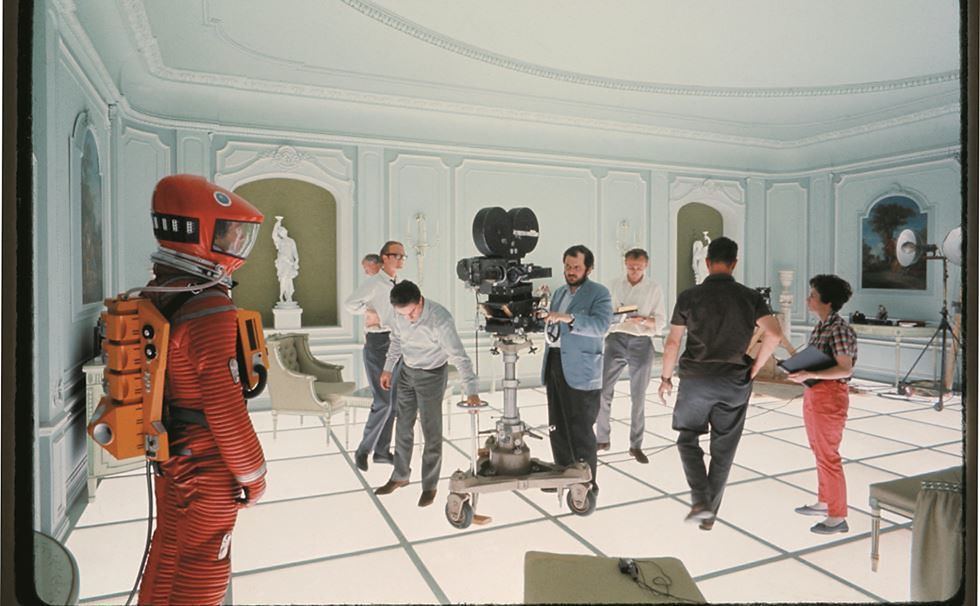It’s Not All Bad: Lockdown Cinema and The Evolution of Film
- Olivia Hall
- Sep 10, 2020
- 3 min read
Stanley Kubrick famously claimed that ‘the best education in film is to make one.’ In this rare departure from his infamous cynicism, he was right. But, I imagine, he may have struggled to comprehend the effect Covid would have on the world, let alone the movie industry. At first glance, in a film industry wracked by Coronavirus, this philosophy would be difficult to fulfil; ‘Covid-Killing-Cinema’ headlines being splashed across front pages as a break from regular broadcasting doesn’t exactly spark optimism in the mind of the producer.
Dull-night-in saviour and streaming favourite Netflix seems to have been one of the few cinematic means that has benefitted from new social distancing measures. As productive as I would have liked to have been, the lure of joggers, an offensive amount of Ben and Jerry’s and slapping on a face mask to binge-watch another sitcom was too strong. It seems I wasn’t alone, with over 10 million new subscribers joining thanks to lockdown. Who can blame them? Even Friends star Courtney Cox admitted to re-watching the show during quarantine to soothe our guilt.
With many viewers falling into the trap of familiar favourites then, it is easy to miss the quiet revolution taking film. Not for the first time, filmmakers have been forced to evolve. Just as pensive cinema-goers were shocked by the transition from black and white to technicolour in the 1930’s, modern producers have been forced to take Covid in their stride, adapting to socially-distanced sets and fresh financial minefields.

Image Credit: Stanley Kubrick: The Exhibition
But Kubrick, despite Covid, is still right. The pandemic for one has refreshed a creative interest in the location of film. Previously ‘insular’ sets in bedrooms and gardens overlooked by more experienced filmmakers reserved for the producing rookie, have been granted a new curiosity. Thus, a genre of innovative, gritty films that take into account the trappings of home life in quarantine have been shaped from raw concepts. Subgenres of wrestling with technology, social strains and the mental obstacles of adapting to a new way of life have been blurred into features that are beyond worthy of the selection of international film festivals still happening. Festivals in Liverpool, London, Switzerland and even Zimbabwe provide a wealth of material beyond streaming which there is little excuse not to make. After all, the quality of the smartphone camera we all carry around with us eclipses the picture quality and convenience of those that filmed the young George Lucas’ ‘goofy’ sci-fi in 1977. It has actually never been easier to make a film in that regard.
I believe there remains room for some harmony between the escapist experience of the local cinema and convenient pickings of modern platforms, despite my soft spot for a cinema trip in the dark winters and innate fear that the streaming service would kill the cinema star. Promisingly, Amazon Prime lead by example, offering films for rent which had had their cinema releases cut short by lockdown. Successful low-budget psychological thriller The Invisible Man was happily buoyed by its equal popularity at home and in cinema.
As a lover of tradition though, it is hard to ignore the uncertain road ahead for the local cinema. AMC Theatres, owner of Odeon cinemas in the UK recently allowed a move that will permit films to be released for home viewing just 17 days after their initial cinema release, not long after boycotting Universal films entirely. While this sounds disastrous, the move completely overlooks how fond people are of their local cinema and how readily many will support them, be it an Odeon or independent screen. Now, more than ever, we need film, entertainment and distraction – I for one have never been happier to see so many classics return to cinema screens in a bid to attract audiences. Streaming or cinema, the potential audiences and opportunities for creativity are larger than ever.
Covid has ultimately introduced a sense of Darwinism in film; filmmakers must evolve or face uncertainty in their future. Using streaming platforms alongside, rather than as an enemy of cinema releases is the key to safeguarding a healthy industry in the future – combined, the platforms reach audiences that would have previously been unable to get to a cinema. Even the explosion of the BLM movement has rightfully brought to life a more diverse and powerful industry that remained hidden to audiences previously.
Audiences shouldn’t worry for the future of cinema as long as they remember the reasons they used to visit pre-Covid; wearing a mask is a small price to pay to ensuring they stick around.
So of course, Kubrick was right. Covid has been yet another education and opportunity for the evolution of filmmakers and audiences. Ultimately, film will survive as there is no excuse not to make one anymore – we need the entertainment industry more than ever. I for one, am happy to still have it around.
Edited by Andriani Scordellis, Film Editor

































